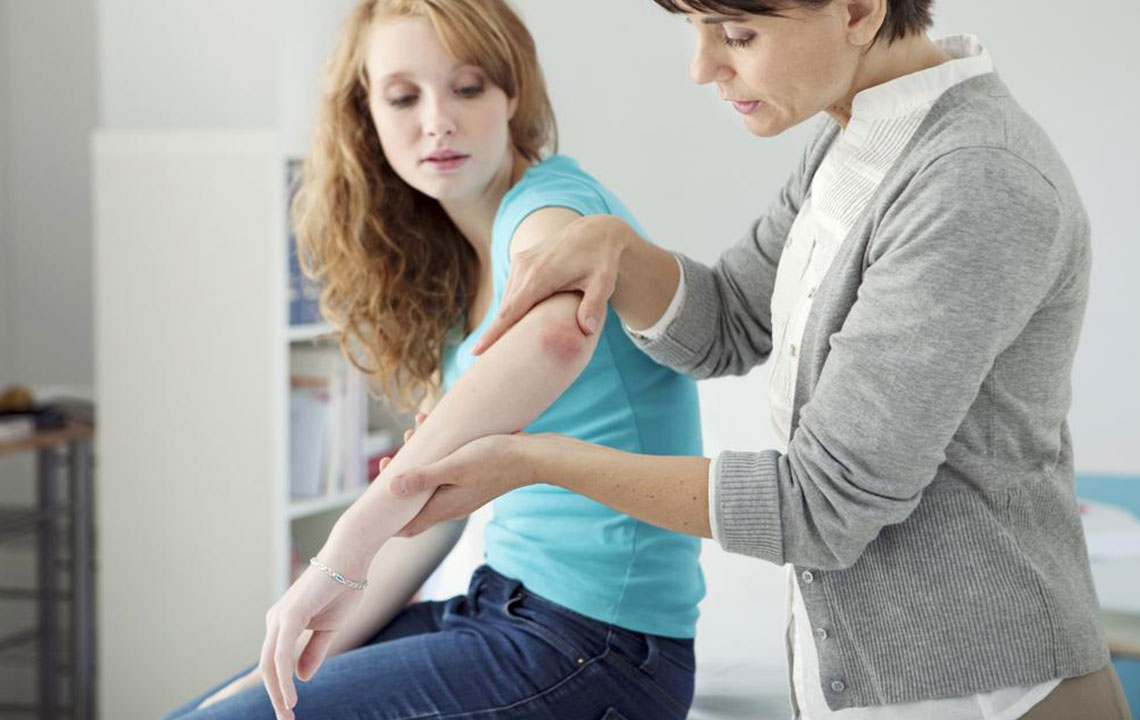6 Daily Habits to Manage Psoriasis Better

Did you know that few alterations in your life can help manage psoriasis symptoms much better? For those who are not acquainted with psoriasis, all you need to know is that it is an autoimmune skin disease that is characterized by elevated skin that is often itchy, inflamed, and flaky.
The truth is that psoriasis has no single cure. The only thing that one can do in this case is to work toward reducing the frequency of the psoriasis flare-ups and try to find ways in which to manage the symptoms of the skin disease better.
The good news though is that there are few simple daily habits and herbal remedies for psoriasis that will help in managing this skin condition better. Read on to find out about six such daily habits that one can use along with some other herbal remedies to ease the symptoms of psoriasis.
- Work toward building immunity – As psoriasis is an autoimmune skin disease, your immune system plays a great role in causing the disease in the first place. Though you cannot alter your genetics, you can aim for a strong immunity that will help you live better with the skin disease. The key to having a great immune system is eating right, indulging in physical activities, and staying fit. If you want to further enhance your immune system, then you can consider including immunity-boosting food items like garlic, onion, and turmeric that act as herbal remedies for psoriasis. These herbal remedies also help in soothing the inflammation that psoriasis brings along.
- Maintain a healthy weight – It is observed that people who are obese are at a higher risk of developing psoriasis or psoriatic arthritis as compared to the rest of the population. So, it is advised that you shed the extra pounds and maintain a steady healthy weight. Losing your weight will help reduce the severity of psoriasis and will help you manage the symptoms better.
Not just that, losing weight is also a great preventive measure that people can take to lower their risks of developing psoriasis. - Try to quit smoking – Smoking is found to have an adverse negative effect on the skin of people who are suffering from psoriasis. Smoking acts as a trigger for psoriasis and it activates the genes and the immune cells that are responsible for psoriasis. It is also observed that smoking can make psoriasis worse. Another reason why you should give a serious thought to quitting tobacco smoking is that it increases your chances of developing severe ailments like heart and kidney diseases, which are health complications that are associated with psoriasis.
- Limit your alcohol intake – Dermatologists and researchers also recommend patients who are suffering from psoriasis to quit or at least cut down their alcohol intake. Consumption of alcohol, just like smoking, aggravates the psoriasis symptoms and makes your skin condition worse. Alcohol can also cause dehydration which can increase the severity of psoriasis flare-ups. Hence, you must cut down on your alcohol intake and instead try to stay hydrated by at least having 8–12 glasses of water every day.
- Take care of your skin – It goes without saying that you need to be extra vigilant about your skin care routine if you are suffering from psoriasis. One of the most crucial tips is to moisturize your skin daily so that you don’t have dry skin, which further damages your skin. You can make use of herbal remedies like an aloe vera gel or turmeric paste to soothe the burning sensation and the redness that comes along with this skin disease. Some doctors recommend that you must get some sunlight every day as it helps to improve your skin. However, having said that, note that in some people overexposure to sunlight is one of the triggers that caused them psoriasis in the first place. In such cases, it is better to limit your exposure to the sun.
- Be conscious of your bathing routine – Your skin becomes flaky and scaly if you are suffering from psoriasis. So, you need to be extra careful about your bathing ritual. Your doctor might recommend you to not take a shower daily and instead bath once every two or three days. You need to be extra careful during the winters, as your skin tends to become drier during the winters. Soaking in a warm bath or having an Epsom bath will help in soothing the skin irritation and aid in making your skin soft.
Though the natural herbal remedies will give you temporary relief from the pain and inflammation that psoriasis brings along, it is also advised that if you are suffering from a severe case of psoriasis then it is best to consult a dermatologist. The best thing to do is to use the herbal remedies for psoriasis as a complementary treatment along with the doctor’s recommended treatment routine.


